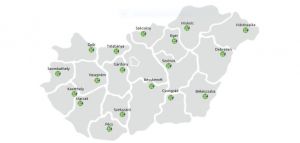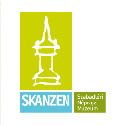Mentor Network
The Mentors’ Network
The mentors’ network – originally 62 trained professionals, the number of whom was latter increased – is the pillar or engine of the Acting Communities priority project. They foster their communities on the spot in order to maintain their initiatives in the long-term.
How can they Help?
The cultural community developers’ mentor network – which contains territorially organized groups of 3-5 mentors in every county except Pest and the capital – gives professional and methodological support for those settlements, communities and cultural institutions which won support at the tender of the Territorial and Settlement Development Operative Program (Hungarian abbreviation: TOP).
The mentors are supposed to
- improve community development of the settlements;
- share and promote completed good practices and methodological developments of the project;
- help the communities to discover and exploit their strengths;
- initiate and follow-up cooperation based on partnership and
- inform continuously local governments, civil societies, communities and thereby the local citizens about the project.
Who are the Mentors?
The mentors’ backgrounds are different: most of them have a degree in community development, community education, museology, librarianship, pedagogy or social work, they are all experienced professionals of the world of cultural institutions, civil organizations or business. The mentors are committed to help communities, have experiences in the field of community development and have their own broad network. To improve their knowledge, they regularly take part in workshops, trainings and lectures; beside the continuous learning they can share their experiences. Though the mentors can reach the communities through their county mentor offices, they also work on the spot directly with the communities.
The mentors’ network must reach at least 360 settlements which would participate in the project. By putting the target through, the a tenth of the Hungarian settlements would be reached by the community development process.
Mentors Network
In the spring of 2017, the network of – about seventy – culture-focused community development mentors started their activity. The mentors, to accomplish the goals of the project, are working in 18 counties.
The culture-focused community development mentors link to each other the communities, institutions and settlements: they promote the close and efficient cooperation of the local citizens with the cultural institutions and encourage them to involve more actively into the life of their community.
The activity of the network of mentors is manifold. They have to provide professional and methodological assistance for planning, launching and executing community development processes to the winning settlements of the TOP-5.3.1-16 and TOP-6.9.2-16 tenders of the Regional and Settlement Development Operational Program, called Strengthening Local Identity and Cohesion.
The mentors also take part in other activities of the Activeg Communities Project. For example, in 2018, as the interviewer of the Representative Survey of Cultural Institutions, they visited about 950 different cultural institutions – from the smallest village site to bigger regional centres.

Mentor’s offices in eighteen counties
They asked locals and organized forums on community development issues. The mentors contribute to the organization of training programs for civil servants and professionals of the cultural sector and take part in the campaign of the Week of Communities. Due to their work, they are in connection with more than 2000 institutes and communities. They promote the participatory operation of libraries, museums and community cultural centres which can turn these institutions into exciting, interesting and open spaces for everybody.
In the course of their activities mentors aim to cooperate closely with the networks of cultural institutions, like the county offices of the NMI Institute for Culture Nonprofit Ltd., the museum coordination network of the Hungarian Open Air Museum – Museum Education and Methodology Centre, the employees of the Directorate of Intangible Cultural Heritage and the network of local public libraries.
The professional knowledge and skills of the mentors are based on the 120 hours training, called Preparation for Culture-Focused Community Development Mentor’s. This training was carried out in cooperation with outstanding experts: 13 curriculum developers, 11 proofreaders and 28 instructors took part in the process. The mentors also received practical community development training. The monthly mentor-days are also improving their knowledge and promote their cooperation.

Mentors training in the countryside. Dunaújváros, 13-15 Septermber 2017. /Photo:NMI Institute for Culture/





